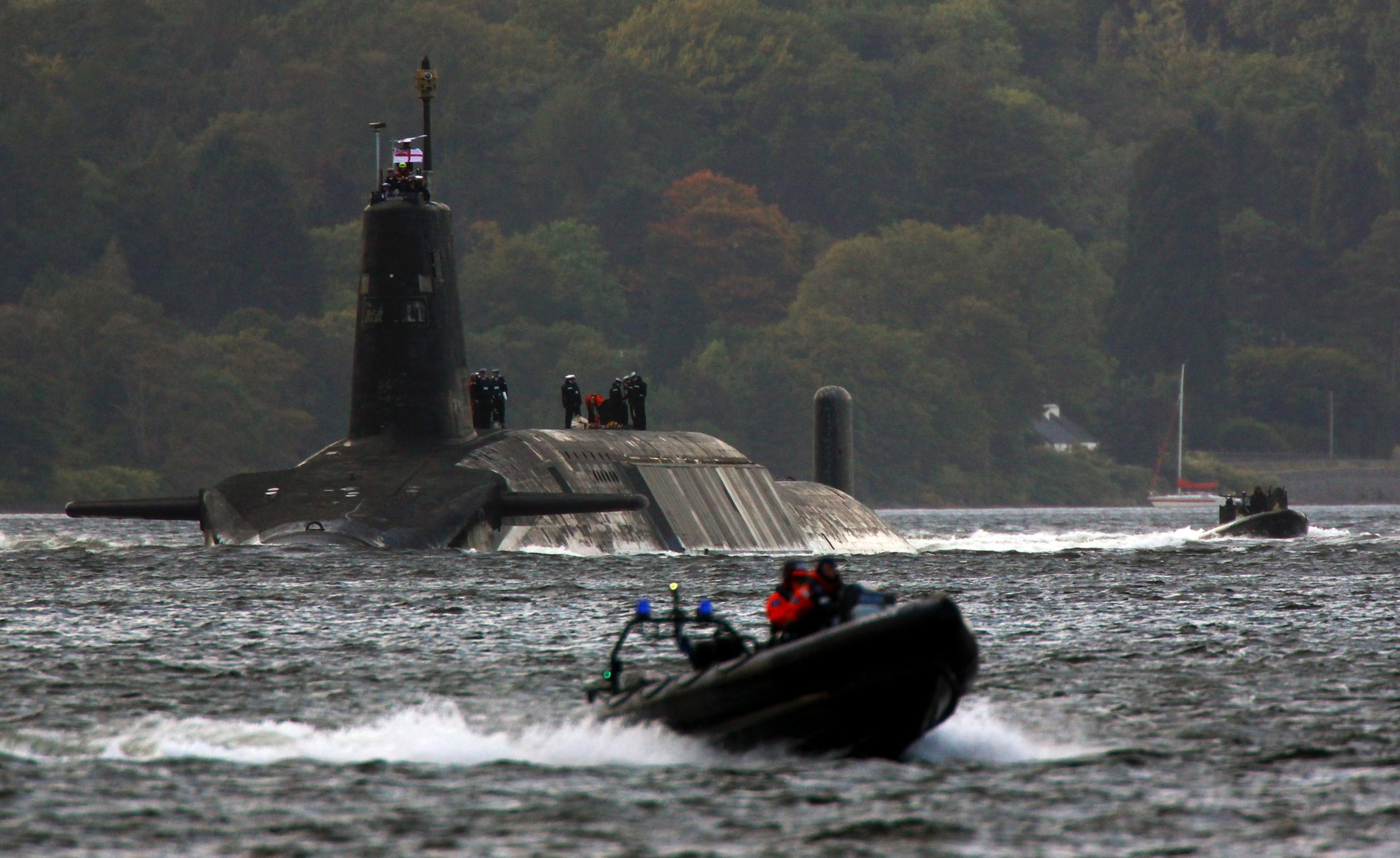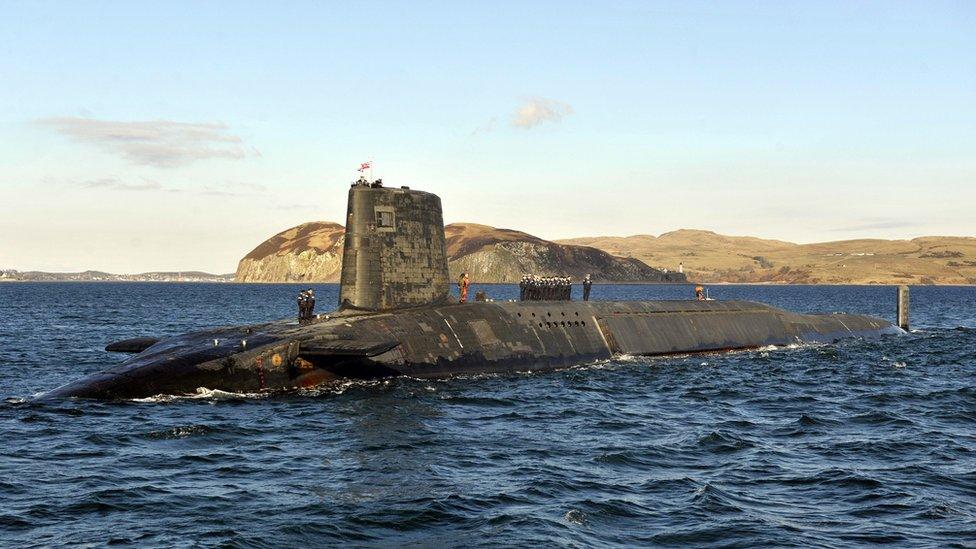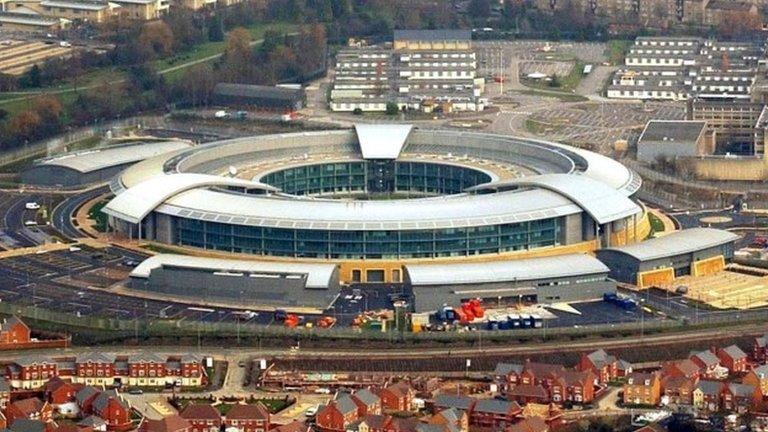Trident: What if it didn't work when needed?
- Published

What if it didn't work? On Monday the prime minister revealed the cost of renewing the nuclear weapons system, Trident, might rise to around £40bn, including cash for contingencies.
But former Labour Defence Secretary Lord Browne has told the BBC that the threat from cyber attacks could render the programme obsolete.
Citing an official report from the American Department for Defense, which asserts that America and its allies cannot be confident weapons programmes could survive significant attacks on their technology, he said the government must identify Trident's weak spots, and make sure they are adequately protected.
If it does not, in his view there is no guarantee the prime minister will be able to use the system "when he needs to reach for it".
Lord Browne's comments may be seized on by supporters of Jeremy Corbyn, who are trying to persuade the Labour Party to abandon its support for the deterrent.
Troublesome issue
The party's leadership is urging its MPs to abstain in a vote later, called by the SNP, that seeks to reject the renewal of Trident.
The vote will not be binding, but Britain's nuclear deterrent is an increasingly expensive, and politically troublesome issue.
Lord Browne, who was defence secretary between 2006 and 2008, said ministers "have an obligation to assure Parliament that all of the systems of the nuclear deterrent have been assessed end-to-end against cyber attacks to understand possible weak spots and that those weak spots are protected against a high-tier cyber threat.
"If they are unable to do that then there is no guarantee that we will have a reliable deterrent or the prime minister will be able to use this system when he needs to reach for it."
He questioned whether the government had taken the cyber threat to our nuclear programme seriously enough, and highlighted an official report from the US Department of Defense.
'Full spectrum'
The report, from the Defense Science Board, said America and its allies cannot be confident of surviving an "attack from a sophisticated and well-resourced opponent utilising cyber capabilities in combination with all of their military and intelligence capabilities".
The report, published in January 2013, asked for assurances that the US nuclear deterrent would be "survivable against the full spectrum" of cyber attacks that could be mounted by major nations.

There have been warnings that hackers could compromise nuclear weapons systems
Thwarting cyber attacks is on the government's agenda.
Last week George Osborne announced the government would spend more than £3bn on cyber security over the next five years, but Lord Browne countered: "My instinct is to think that £3.2bn over five years, comes nowhere near the scale of the cyber threat challenge, if it includes ensuring cyber security for the command and control of our nuclear weapons.
"Also, this is the environment to which Moore's Law applies. Consequently, we can expect cyber capacity to have doubled and doubled again since the report was published and to continue to increase.
"Unlike the renewal of the submarines, which will then last for 30 years or more, dealing with the cyber threat is a commitment to a continuous spend."
'Wrong reasons'
Labour is divided on the issue, with its leader, Jeremy Corbyn, hoping to persuade the party to abandon its existing policy to renew Trident.
One senior Labour figure said: "Jeremy is right, but for the wrong reasons."
And the controversially appointed co-chairman of Labour's defence review, Ken Livingstone, said Britain should scrap its plans to replace Trident unless the prime minister could provide guarantees the system is completely protected against cyber attacks.
Mr Livingstone said: "Those questions need to be answered by the prime minister in the House of Commons before we commit to spending £20bn on another generation of this stuff.
"Spending £20bn on something is bad enough but spending £20bn on something that won't be able to work is a bit of a problem."
Sir Malcolm Rifkind, who served as defence secretary in the 1990s, played down Lord Browne's warnings.
Sir Malcolm said: "The whole point of our nuclear weapons is not whether they would work if they were ever required. You think they will do. The question is whether an enemy contemplating aggression would be prepared to take the risk."
- Published24 November 2015

- Published17 November 2015
